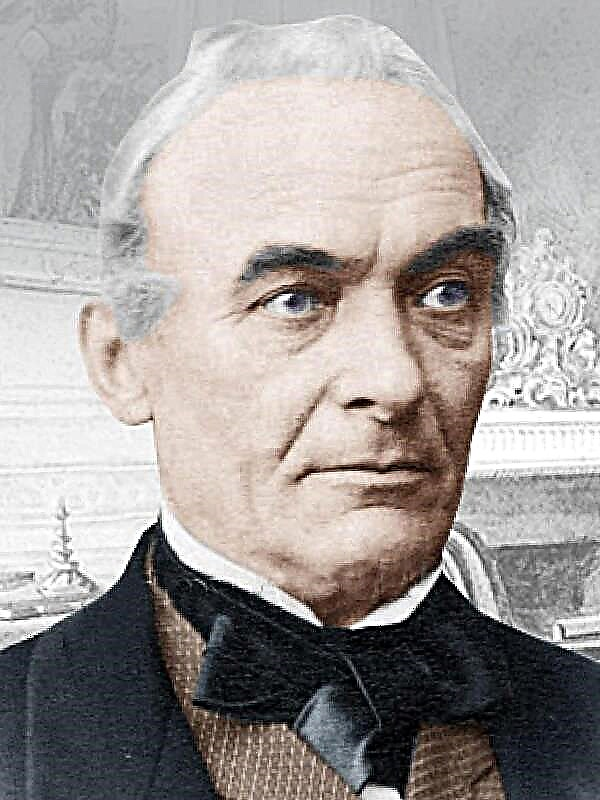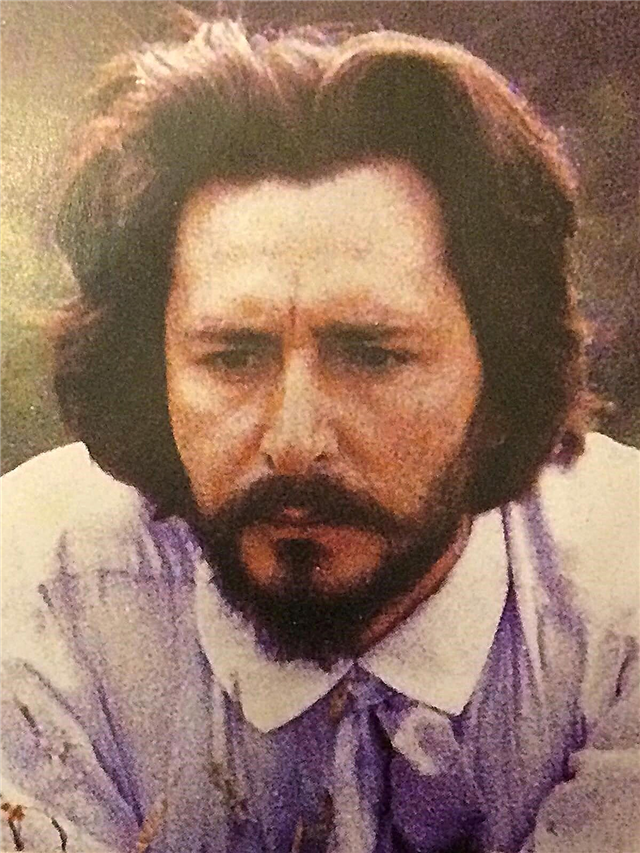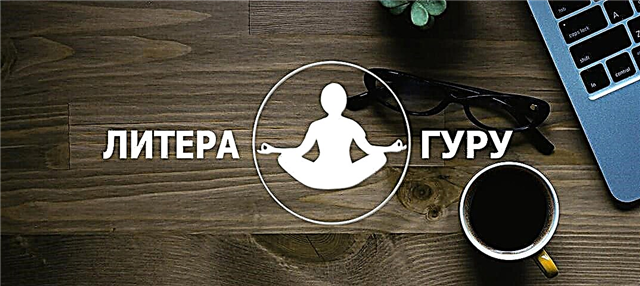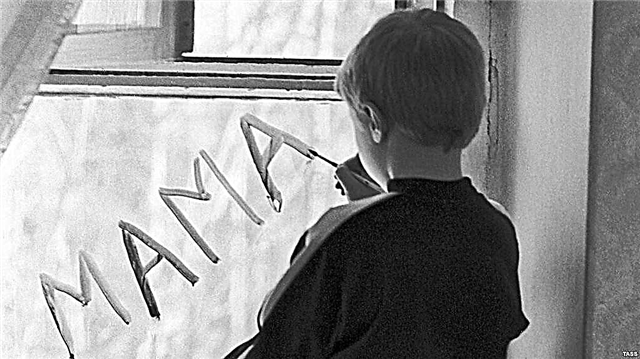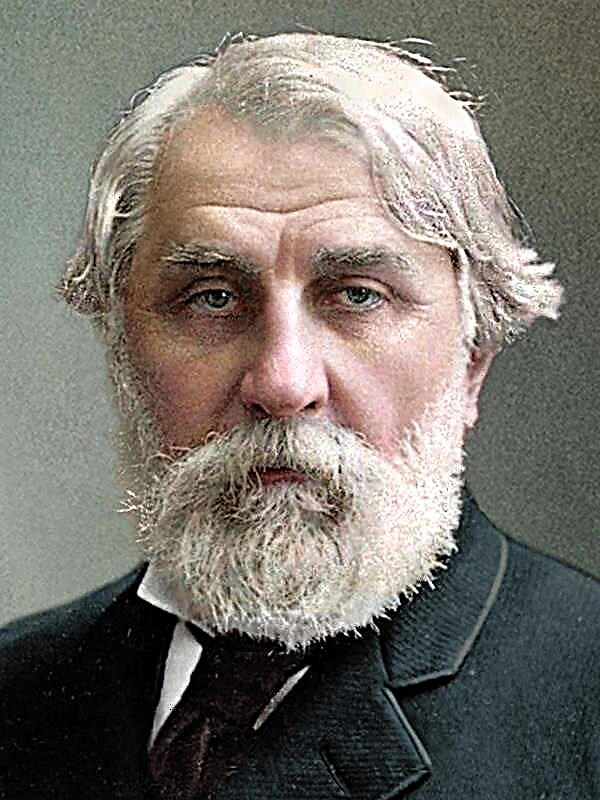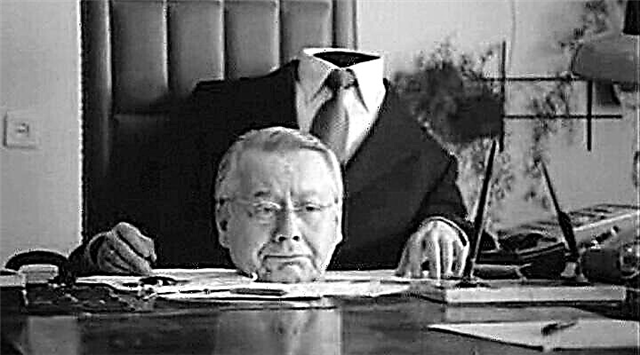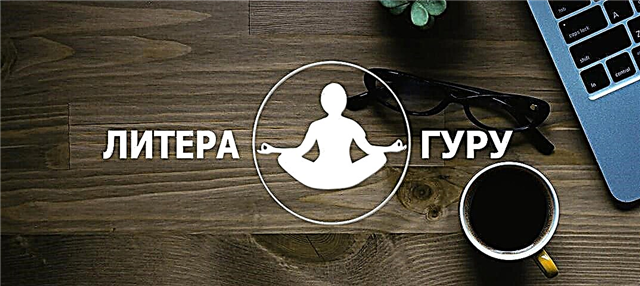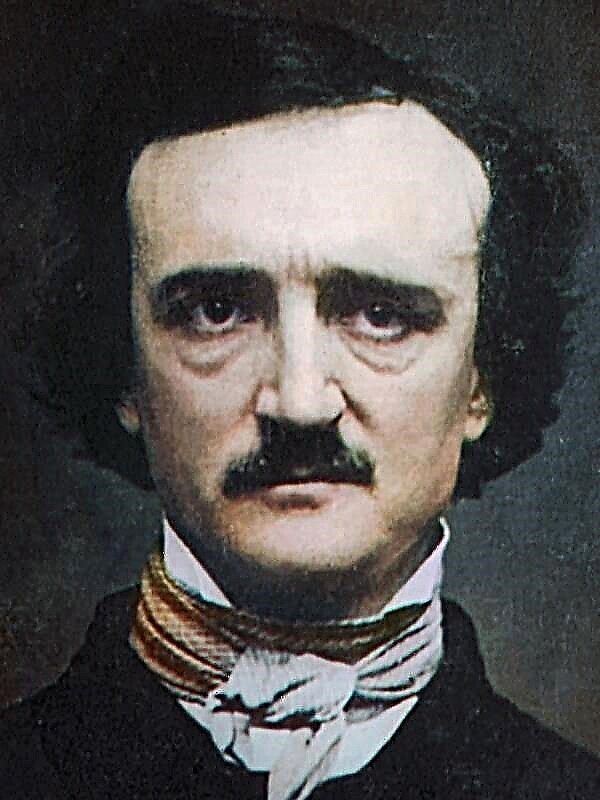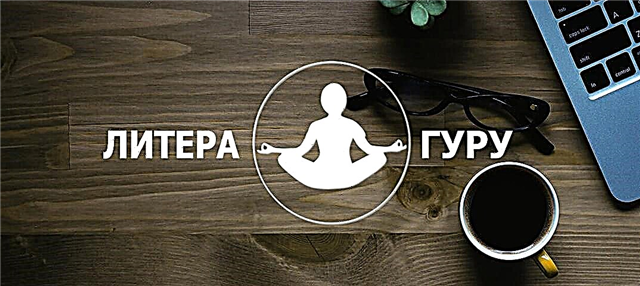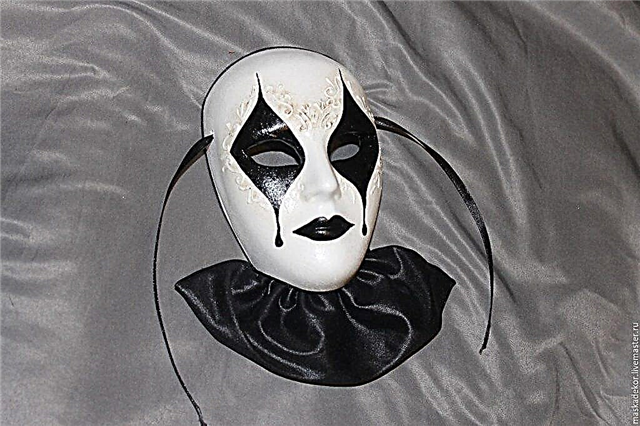: Travelers are greeted by a monk who tells how many adventures, torments and trials he went through before he went to the monastery.
Chapter one
Traveling around Lake Ladoga on a boat, travelers, among whom was a storyteller, visited the village of Korela. When the journey continued, satellites began to discuss this ancient, but very poor Russian town.
One of the interlocutors, inclined to philosophy, noted that “inconvenient people” should not be sent to Siberia, but to Korela - this will be cheaper for the state. Another said that the deacon who lived here in exile did not withstand the apathy reigning in Korel and boredom for a short time - he hanged himself. The philosopher believed that the deacon did the right thing - “he died and ends up in the water”, but his opponent, a religious person, thought that suicides were tormented in the next world, because no one was praying for them here.
Suddenly, a new passenger stood up for the suicidal clerk, a silent, powerful, gray-haired man of about fifty in the clothes of a novice.
He was in the full sense of the word a hero, and, moreover, a typical, simple-hearted, kind Russian hero, reminiscent of grandfather Ilya Muromets in a beautiful picture of Vereshchagin.
He spoke of a priest from the Moscow diocese who prays for suicides and thereby “corrects their situation” in hell. Because of drunkenness, Patriarch Filaret wanted to cut off the priest, but Rev. Sergius himself stood up for it, having twice appeared to the lord in a dream.
Then the passengers began to question the hero-monk-priest about his life, and learned that he served in the army as a koneser - he chose and tamed army horses, to which he had a special approach. It was clear from everything that the Chernozorite lived a long and stormy life. Passengers begged him to tell about themselves.
Chapters Two - Fifth
Ivan Severyanych Flyagin was born a serf on the estate of a wealthy count from the Oryol province. The count bred horses, and Ivan's father served with him as a coachman. Ivan’s mother had no children for a long time, and the woman prayed for the child from God, and she herself died during childbirth. The boy was born with a huge head, so the yard called him Golovan.
Ivan spent his early childhood at the stable and fell in love with horses. At eleven years old, he was put as a post-graduate on the six that his father ruled. Ivan had to scream, driving people out of the way. He yawned with a whip.
Once Ivan and his father drove the count to visit the monastery. The boy whipped a monk who had fallen asleep in a cart. He was frightened, fell from the cart, the horses were carried, and the monk was crushed by wheels. At night, the monk killed by him appeared to Ivan, said that Ivanov’s mother not only begged him, but also promised God, and ordered him to go to the monastery.
You will perish many times and you will never perish until your real perdition comes, and then you will recall the material promise for you and go to Chernets.
Ivan did not attach importance to the words of the dead monk, but soon his "first death" happened. On the way to Voronezh, the Count's team with the crew nearly collapsed into a deep abyss. Ivan managed to stop the horses, and he fell under a cliff, but miraculously survived.
For saving his life, the count decided to award Ivan. Instead of asking to go to the monastery, the boy wanted an accordion, which he never learned to play.
Soon, Ivan brought a couple of pigeons, from them the chicks went, which the cat was used to carrying. Ivan caught the cat, carved it, cut off her tail and nailed it over his window. The cat belonged to the beloved maid of the countess. The girl ran to Ivan to curse, he shot her with a “broom at the waist”, for which he was ejected at the stable and was sent to crush stone for garden paths.
Ivan crushed the stone for so long that he had "growths on his knees." Tired of enduring ridicule - they say they condemned him by the cat's tail - and Ivan decided to hang himself in the nearest aspen fishing line.He just hung in a noose, when the gypsy came from wherever he cut the rope, and invited Ivan to go with him into the thieves. He agreed.
So that Ivan did not get off the hook, the gypsies forced him to steal horses from the count stables. The horses were sold expensively, but Ivan received only a silver ruble, had an argument with a gypsy and decided to surrender to the authorities. He got to the clerk of the past. For a ruble and a silver pectoral cross, he asked Ivan a pass and advised him to go to Nikolaev, where there was a lot of work.
In Nikolaev Ivan got to the barin-pole. His wife escaped with the military, leaving behind her infant daughter, whom Ivan had to babysit and feed goat milk. For a year, Ivan became attached to a child. One day he noticed that the girl’s legs “go in a wheel”. The doctor said that this was an “Aglitz disease” and advised to bury the child in warm sand.
Ivan began to carry a pupil to the shore of the estuary. There he again saw a monk, called him somewhere, showed a large white monastery, steppes, "wild people" and said affectionately: "You still have to endure a lot, and then you will achieve it." Having regained consciousness, Ivan saw a strange lady kissing his pupil. The lady turned out to be the mother of the girl. Ivan did not allow to take the child, but allowed them to meet at the estuary secretly from the master.
The lady said that her stepmother forced her to marry. She did not love her first husband, but she loves her current husband, because he is very affectionate with her. When the time came for the lady to leave, she offered Ivan a lot of money for the girl, but he refused, because he was a "official and loyal" man.
Then the lady's cohabitant, Lancer, appeared. Ivan immediately wanted to fight with him and spat on the money that he gave. "Nothing but bodily chagrin," for himself, the lancer did not receive, but he did not raise money, and Ivan liked this nobility very much. He tried to pick up the Lancer child, at first Ivan did not give it, and then he saw his mother reaching for him, and took pity. At that moment, a gentleman-pole appeared with a pistol, and Ivan had to leave with his lady and lancer, leaving his “lawless” passport with the Pole.
In Penza, Lancer said that he, a military man, could not keep a runaway serf, he gave Ivan the money and released him. Ivan decided to surrender to the police, but first went to the tavern, drank tea with pretzels, the field of which he wandered to the bank of the Sura. There Khan Dzhangar, the "first steppe horse breeder" and the king, sold wonderful horses. Two rich Tartars decided to fight for one mare.
They look into each other’s eyes, their feet rest on their feet with their footsteps, and their left hands are tightly clasped, and their right ones are flogged with whips ...
The acquaintance, with whom Ivan drank tea, explained to him all the intricacies of the Tatar struggle, and the twenty-three-year-old hero wanted to participate.
Chapters Six - Nine
In a dispute over the next horse, a lancer interposed. Ivan joined him in battle with the Tatar, and to the death he buttoned his whip. After that, the Russians wanted to put Ivan in prison, but the Tatars took pity on him and took him to the steppe.
Ivan lived in the steppe for ten years, was with the Tatars as a healer - he treated horses and people. Having missed his homeland, I wanted to leave, but the Tatars caught him and “nurtured”: they cut the skin on the feet, stuffed chopped horsehair there and sewn it up. When everything healed, Ivan was unable to walk normally - so the stubble was pricked, I had to learn to go “raskoryakoy”, on the ankles, and stay in the steppe.
For several years, Ivan lived in the same horde, where he had his own yurt, two wives, and children. Then a neighboring khan asked to treat his wife and left the doctor at his place. There, Ivan received two more wives. For his numerous children, Ivan did not feel paternal feelings, because they were "unbaptized and not oiled by the world." For ten years, he was not used to the steppes and was very homesick.
Sultry look, cruel; open space - there is no edge; ‹...› and the sun pours, burns, and the steppes, as if life is painful, have no end in sight, and here there is no bottom to the depths of longing ...
Ivan often recalled the house, holiday feasts without the disgusting horsemeat, father Ilya. At night he quietly went to the steppe and prayed for a long time.
Over time, Ivan despaired of returning to his homeland and even stopped praying - "what ... pray, when nothing comes of it." Once two priests appeared in the steppes - they came to convert the Tatars to Christianity. Ivan Popov asked to rescue him, but they refused to intervene in the affairs of the Tatars. Some time later, Ivan found one priest dead and buried him in a Christian way, while the other disappeared without a trace.
A year later, two appeared in the horde in trousers and bright robes. They came from Khiva to buy horses and set up the Tatars against the Russians. So that the Tatars would not rob and kill them, they began to frighten the people with the fiery god Talafa, who gave them his fire.
One night, strangers staged a fiery presentation. The horses were frightened and scattered, and the adult Tatars rushed to catch them. In the camp there were women, old people and children. Then Ivan got out of the yurt and realized that strangers scared people with ordinary fireworks. Ivan found a large supply of fireworks, began to launch them, and so frightened the wild Tatars that they agreed to be baptized.
In the same place, Ivan also found "pungent earth," which "scorches the body scorching." He put it on his heels and pretended to be sick. Within a few days, the feet were corroded, and the stubble sewn in them came out with the pus. When his legs healed, Ivan "for even more wit, let the biggest fireworks go and leave."
Three days later, Ivan went to the Caspian Sea, and from there he got to Astrakhan, earned a ruble and washed it down. He woke up in prison, from where he was sent to his native estate. Father Ilya refused to confess and partake of Ivan, because he lived with the Tatars in sin. The count, who became a pilgrim after the death of his wife, did not want to endure a person who was excommunicated from the sacrament, flanged Ivan twice, gave his passport and released him.
Chapters Ten - Fourteenth
Ivan left his native estate and went to the fair, where he saw a gypsy trying to sell a worthless horse to a peasant. Being offended by the gypsies, Ivan helped the peasant. From that day on, he began to go to fairs, “guide poor people” and gradually became a thunderstorm for all gypsies and young ladies.
One military prince asked Ivan to discover the secret by which he chooses horses. Ivan began to teach the prince how to distinguish a good horse, but he could not learn science and invited him to serve as a koneser.
For three years Ivan lived with the prince “as a friend and assistant,” choosing horses for the army. Sometimes the prince was lost and asked Ivan for state money to recoup, but he did not give. The prince was angry at first, and then thanked Ivan for his loyalty. Walking himself, Ivan gave the prince money for preservation.
Once the prince left for the fair and soon ordered to send a mare there, which Ivan liked very much. From chagrin, he wanted to drink, but there was no one to leave the official money. For several days Ivan was "languid" until he prayed at an early mass. After that, he felt better, and Ivan went to the tavern to drink tea, where he met a beggar "of the noble." He begged the public for vodka and, for fun, ate it with a glass of wine.
Ivan took pity on him, put him a decanter of vodka and advised him to stop drinking. The beggar replied that his Christian feelings did not allow him to stop drinking.
But what, do you think, if I abandon this habit of drinking and someone picks it up and takes it: will he be happy about it or not?
The beggar showed Ivan his gift of sobering up instantly, which he explained by natural magnetism, and promised to remove from him "drunken passion." The beggar made Ivan drink a glass after a glass, making his hands over each pass.
So Ivan was “treated” until the evening, all the time remaining in his right mind and checking whether the bureaucratic money was safe in his bosom. In the end, the drinking companions quarreled: the beggar considered love a sacred feeling, and Ivan insisted that all this was nothing. They were kicked out of the tavern, and the beggar brought Ivan to the "living room", full of gypsies.
In this house, Ivan was fascinated by the singer, the beautiful gypsy Grusha, and he threw all the official money at her feet.
Chapters Fifteen - Eighteenth
Sobering up, Ivan found out that his magnetizer had died from drunkenness, but he himself remained magnetized and since then has not taken vodka into his mouth. He admitted to the prince that he had squandered the treasury on a gypsy, after which he had a delirium tremens.
Having recovered, Ivan found out that his prince had mortgaged all his property in order to redeem the beautiful Grusha from the camp.
A woman stands in the whole world, because she will inflict such an ulcer that you won’t be cured of the whole kingdom, and she alone can heal her in one minute.
The pear quickly fell in love with the prince, and he, having received what he wanted, began to be burdened by an uneducated gypsy and ceased to notice her beauty. Ivan made friends with Pear and very sorry for her.
When the gypsy became pregnant, the prince began to annoy his poverty. He started one thing after another, but all of his "projects" brought one loss. Soon, the jealous Pear suspected that the prince had a mistress, and sent Ivan to the city to find out.
Ivan went to the prince’s former mistress, “secretary daughter” Evgenia Semenovna, from whom he had a child, and became an unwitting witness to their conversation. The prince wanted to borrow money from Evgenia Semyonovna, to rent a cloth factory, to be known as a manufacturer, and to marry a wealthy heiress. He was going to give a pear to marry Ivan.
The woman, still in love with the prince, laid the house that he had donated, and soon the prince embraced the daughter of the leader. Returning from the fair, where he purchased “samples of fabrics from Asians” and took orders, Ivan found that the prince’s house was renovated and ready for the wedding, but Pear was nowhere to be found.
Ivan decided that the prince killed the gypsy and buried him in the forest. He began to search for her body, and one day he came across a living Pear by the river. She said that the prince locked her in a forest house under the protection of three dozen girls, but she escaped from them. Ivan suggested that the gypsy woman live together as a sister and brother, but she refused.
The pear was afraid that she could not stand it, and would destroy the innocent soul - the bride of the prince, and made Ivan swear a terrible oath that he would kill her, threatening to become "the most shameful woman." Unable to stand, Ivan threw the gypsy off a cliff into the river.
Chapters nineteen - twentieth
Ivan ran away and wandered for a long time, until the Pear, who appeared in the form of a girl with wings, showed him the way. On this way, Ivan met two old men from whom they took away their only son, and agreed to serve in his place. The old men passed new documents to Ivan, and he became Peter Serdyukov.
Once in the army, Ivan asked to the Caucasus, "rather die for faith," and served there for more than fifteen years. Once, a detachment of Ivan pursued the Caucasians who had gone beyond the Koisu River. Several soldiers died trying to build a bridge across the river, and then Ivan volunteered, deciding that this was the best case "to end his life." While he was sailing across the river, he was guarded by Pear in the form of a “young woman about sixteen years old”, he was fenced off by wings from death, and Ivan went ashore unharmed. After he told the colonel about his life, he sent a paper to find out if the gypsy Grusha was really killed. He was told that there was no murder, and Ivan Severyanych Flyagin died in the house of the peasants Serdyukov.
The colonel decided that Ivan had a dizziness from danger and icy water, made him an officer, dismissed him and gave a letter "to one big person in Petersburg." In St. Petersburg, Ivan was arranged as a “consultant” in the address table, but his career did not go, because he got the letter “Fita”, which was very few names, and there was almost no income from such work.
The coachman Ivan, a noble officer, was not taken, and he went as an artist into a street booth to portray a demon. There Ivan interceded for a young actress, and he was kicked out. He had nowhere to child, he went to the monastery and soon fell in love with the local way of life, similar to the army. Ivan became the father of Ishmael, and they put him to the horses.
Travelers began to ask if Ivan was suffering “from a demon,” and he said that he was tempted by a demon who pretended to be a beautiful pear.One elder taught Ivan to drive the demon out of prayer while kneeling.
A man’s knees ‹...› the first instrument: as you fall on them, the soul will flutter up now ...
By prayer and fasting, Ivan dealt with the demon, but soon the little devils began to bother him. Because of them, Ivan accidentally killed a monastery cow, taking it at night for the devil. For this and other transgressions, Father Superior abbot locked Ivan in the cellar for the whole summer and ordered the salt to be ground.
Ivan read newspapers in the cellar, began to prophesy, and prophesied an early war. The abbot transferred him to an empty hut, where Ivan lived all winter. The doctor called to him could not understand, the prophet Ivan or the madman, and advised him to let him “run over”.
Ivan appeared on the ship, making his way to the pilgrimage. He believed firmly in a future war and was about to join the army in order to "die for the people." Having told all this, the charmed wanderer fell into thought, and the passengers did not dare to ask him more, for he told his past, and the future remained “in the hand of hiding his fate from smart and rational ones and only sometimes opening them to babies”.


